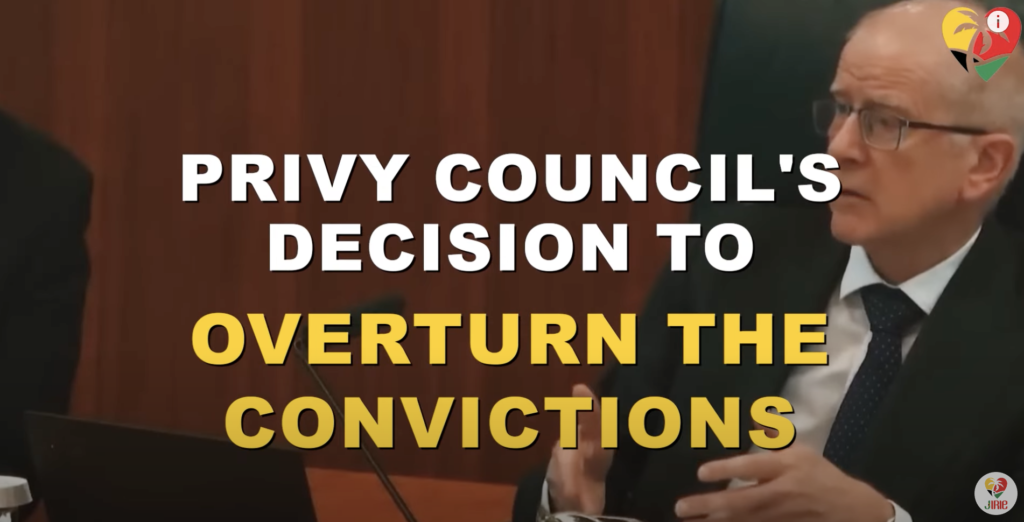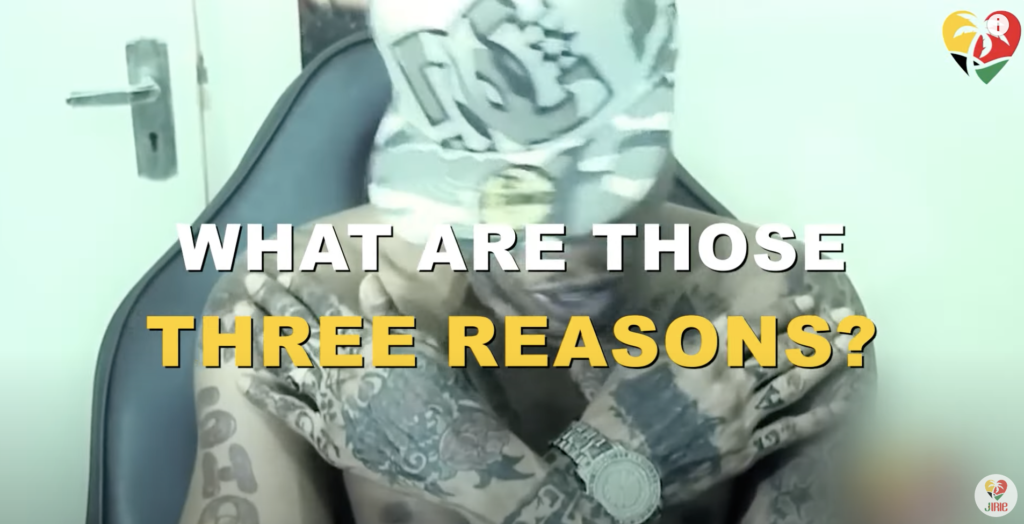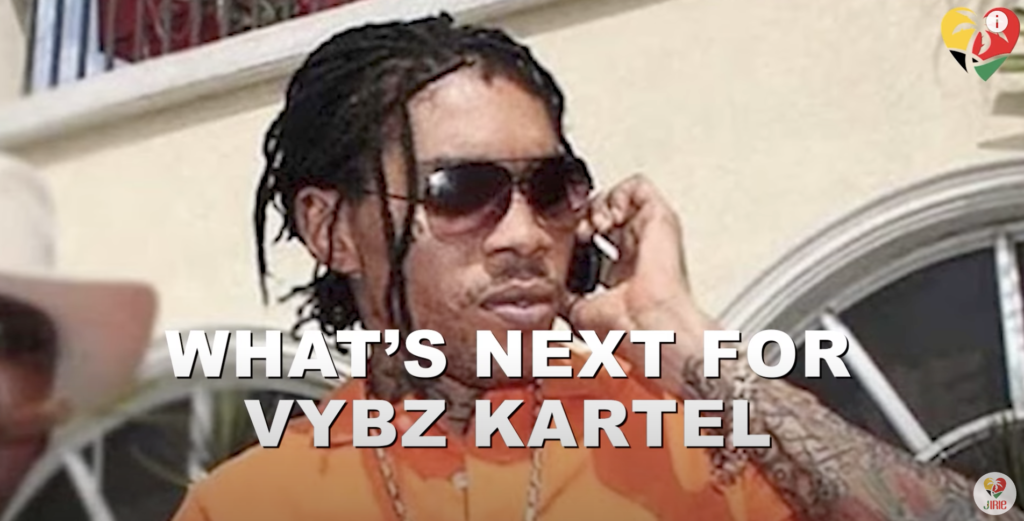Today, we’re Unraveling the Mysteries of Vybz Kartel’s Overturned Murder Conviction and take a look Inside the Legal Drama That Rocked Jamaica’s Music Scene!
Why has Jamaican dancehall artist Vybz Kartel’s conviction for murder been overturned by the Privy Council in the United Kingdom?
Stay tuned until the end as we unravel what the final outcome of Vybz Kartel’s case could be and explore the potential options and implications following the recent decision by the Privy Council.
Join the conversation and let us know what you think in the comment section below.
The Judicial Committee of the UK Privy Council “unanimously” determined that the trial judge’s decision in the Vybz Kartel murder case to allow the tainted juror to remain on the panel was “fatal” to the entertainer’s murder conviction. The judge’s ruling also violated Kartel and his three co-accused’s “fundamental right to a fair hearing under the Jamaican Constitution.”
Let’s discuss this further.
The Background
On September 29, 2011, police detained Kartel for cannabis possession. Jamaica’s Major Investigation Taskforce later accused him of the murder of Jamaican businessman Barrington Burton, as well as conspiracy and illegal firearm ownership.
On March 23, 2012, Vybz Kartel was granted bail of Jamaican $3 million in connection with the Burton murder case. However, he continued to be held in prison due to his involvement in another murder case, that of Clive ‘Lizard’ Williams from Waterford, St. Catherine. Additionally, Kartel and two others, including Vanessa “Gaza Slim” Saddler, were charged with perverting the course of justice. This charge stemmed from Saddler’s alleged claim that Williams had robbed her, a fabrication aimed at deceiving the authorities into thinking Williams was still alive.
Vybz Kartel’s original conviction was the result of a lengthy legal process that involved multiple stages, including trial, appeal, and ultimately, a decision by the Privy Council. Here’s a summary of the process and the outcome of the original conviction:
- Trial and Conviction:
- Kartel, along with his co-accused, was tried for the murder of Clive ‘Lizard’ Williams in a high-profile trial in Jamaica.
- The trial lasted for 64 days and involved extensive evidence and testimonies.
- The prosecution presented evidence linking Kartel and his associates to Williams’ murder, including phone records and testimonies from witnesses.
- Based on the evidence presented, Kartel and his co-accused were convicted of murder, conspiracy to murder, and illegal firearm possession.
- Appeal to the Jamaican Court of Appeal:
- Following their conviction, Kartel and his co-accused appealed the decision to the Jamaican Court of Appeal, seeking to overturn their convictions.
- The Court of Appeal heard their appeals and subsequently dismissed them, upholding the original convictions and sentences.
- Appeal to the Privy Council:
- After exhausting their legal options in Jamaica, Kartel and his co-accused appealed to the Privy Council in the United Kingdom, which serves as the final court of appeal for Jamaica.
- The Privy Council reviewed the case, including the trial proceedings, evidence, and legal arguments presented by both the defense and prosecution.
- Privy Council’s Decision to Overturn the Convictions:
- The Privy Council unanimously determined that there were serious irregularities in the trial process, particularly related to a tainted juror and violations of Kartel’s right to a fair hearing under the Jamaican Constitution.
- The judge’s decision to allow the compromised juror to remain on the jury was considered “fatal” to the conviction, and it was deemed to have infringed upon Kartel’s fundamental rights.
- As a result, the Privy Council overturned Kartel’s murder conviction and remanded the case to the Jamaican Court of Appeal to consider whether a retrial should be ordered.
The original conviction resulted in Kartel and his co-accused being sentenced to prison for murder and related charges. However, the subsequent legal challenges and the Privy Council’s decision have raised significant questions about the fairness and integrity of the trial process.
The Judgement

In reading the Privy Council’s decision, Lord Lloyd-Jones focused directly on then-Supreme Court Judge Justice Lennox Campbell’s handling of the compromised juror, whom he referred to as “juror X.” During the 64-day trial in Jamaica, the court learned of an accusation that a juror sought to bribe others by offering J$500,000 for a specific conclusion.
After investigating the claim and consulting with counsel for both the prosecution and the defense, the judge determined that the trial should proceed. He did not discharge the jury or the juror accused of offering the bribes.
“The Board has considerable sympathy for the dilemma faced by the trial judge on the final day of a long and complex trial,” it said.
“Following the bribery allegations, Justice Campbell had to continue with the 11 remaining jurors or discharge the jury. “Despite this, the board believes the judge’s approach was a major irregularity throughout the trial, necessitating the quashing of the convictions,” he concluded.
What are those three reasons?

Lloyd-Jones then presented the three reasons why the convictions were overturned.
Number 1: The jury’s instructions on the penultimate day were insufficient to save the situation. The judge simply reminded the jury that they had sworn, or affirmed, that they would deliver judgments based on the facts presented in court. The judge did not mention the alleged bribery, which, if true, the jurors would have known about.
Number 2: The trial proceeded, with the suspected corrupt juror serving as one of the 11 members. The board believes there should have been no doubt about permitting juror X, the contaminated juror, to continue serving on the jury. Allowing juror X to remain on the jury jeopardizes the subsequent conviction. It violates the appellant’s fundamental right to a fair hearing under the Jamaican Constitution.
Number 3: The judge should have considered whether juror X’s actions caused the remaining jurors to be conscious or unconsciously biased in favor of or against one or more of the appellants.
For example, there was a risk that the attempted bribe would have caused the other jurors to overcompensate, consciously or unconsciously, if they concluded that the offer had come from one of the appellants and thus that they were guilty. The judge made no mention of this possibility.
Lloyd-Jones stated that the UK Privy Council was “very mindful” of the serious ramifications of having to discharge a jury just before the conclusion of a lengthy and complex criminal trial. “It is also very conscious of the danger of deliberate attempts to derail criminal trials by engineering situations, which is necessary to discharge the jury,” he went on to say.
Lloyd-Jones stated that in England and Wales, for example, there is a law that empowers a judge to discharge a jury in specific circumstances due to jury manipulation and continue the trial by judge alone. “There is no such legislation in Jamaica,” he explained.
Further, he said: “It follows that there will be occasions where, as in this case, a court will have no alternative but to discharge a jury and end the trial to protect the system at trial by jury.” In light of its findings on jury misconduct, Lloyd-Jones stated, “The board holds that it was not necessary to express a concluded view on the other two grounds of appeal.”
These concerns were the legitimacy of the telephone evidence used to condemn the men and whether it violated their constitutional rights; and whether the trial judge was incorrect in inviting the jury to make a verdict late in the day, given the case’s unique circumstances.
Regarding retrial, the Privy Council stated that Section 14(2) of the Judicature Appellate Jurisdiction Act allows for a retrial after a conviction is quashed if it is in the interests of justice.
The court noted in its decision, which was released shortly after the oral judgment was delivered, that “the board proposes to follow in this case its usual practice of remitting to the local courts the question of whether a retrial should be ordered.”
A panel of justices delivered the council’s ruling, stating that a juror accused of attempting to bribe fellow jurors was not removed. The judge allowed them to continue the case and have a role in the eventual verdict.
Allowing this jury to remain, the council stated, was “fatal to the safety of the convictions that followed” and “an infringement of the [defendants’] fundamental right to a fair hearing.” It was also claimed that jurors were under “undue pressure” to make a decision late in the day.
They also claimed that a critical piece of mobile phone evidence produced in court, a text message supposedly sent from Kartel’s phone, had been obtained in violation of standards.
What’s next for Vybz Kartel

Following the Privy Council’s decision to overturn Vybz Kartel’s murder conviction, there are several options for Kartel and the courts going forward:
1. Retrial: The Jamaican Court of Appeal may decide to order a retrial based on the remand from the Privy Council. This would involve a new trial where the evidence and arguments would be reexamined by a new jury.
2. Appeal Consideration: Kartel and his legal team could explore further appeal options or legal strategies to address any remaining issues in the case.
3. Bail or Release: Depending on the legal proceedings and decisions, there may be considerations for Kartel’s bail or release from prison, especially if a retrial is ordered and he is not considered a flight risk or a danger to society pending the new trial.
4. Legal Reform: The case has highlighted potential flaws or irregularities in the Jamaican legal system, particularly regarding jury handling and fair trial standards. This could lead to discussions and reforms to improve the justice system.
5. Public Response: The public and media attention on the case may continue, influencing public opinion, discussions, and potential actions related to Kartel’s legal situation.
Ultimately, the specific course of action will depend on the decisions and considerations made by the Jamaican Court of Appeal, Kartel’s legal team, and any further legal developments in the case.
What are your thoughts on the legal complexities in Vybz Kartel’s case?
Do you believe the overturning of his conviction was justified?
We look forward to hearing your insights and starting a conversation with our community!
What topics would you like us to cover in the future? Your feedback helps us create content that matters to you. Drop a comment below and let us know your suggestions.


